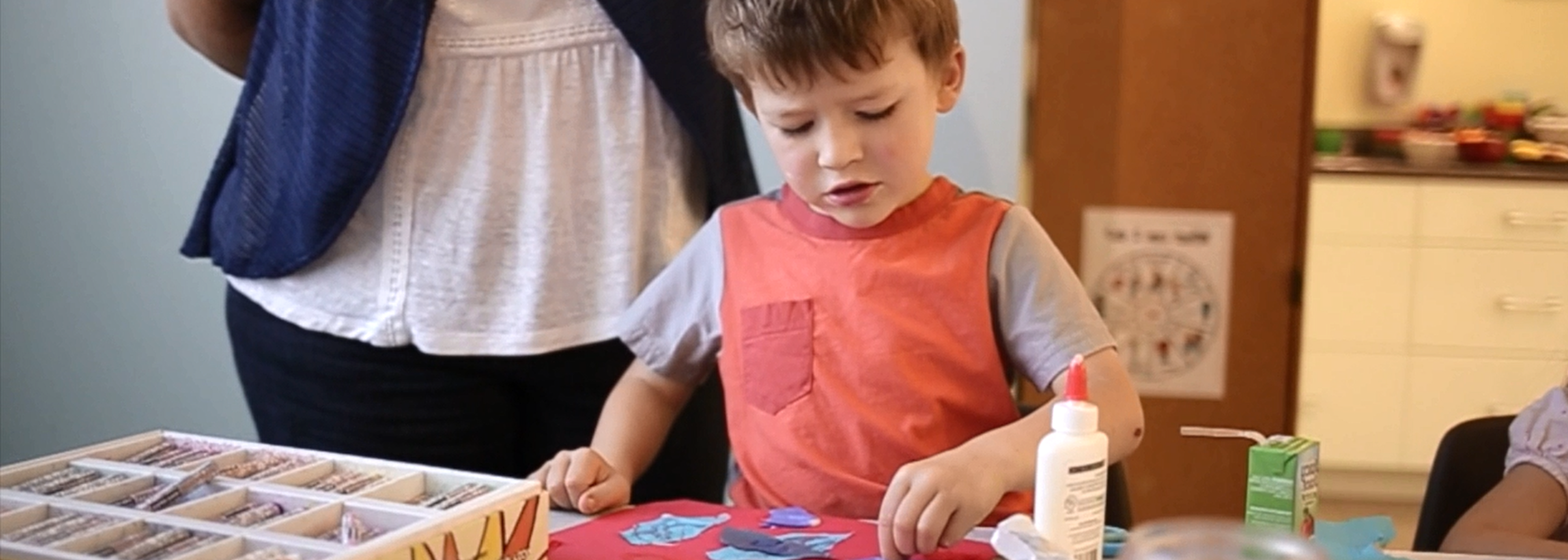
These programs are the direct result of advocates and survivors working together to end the cycle of violence and address our community’s changing needs in creative and innovative ways.
On-Site Services
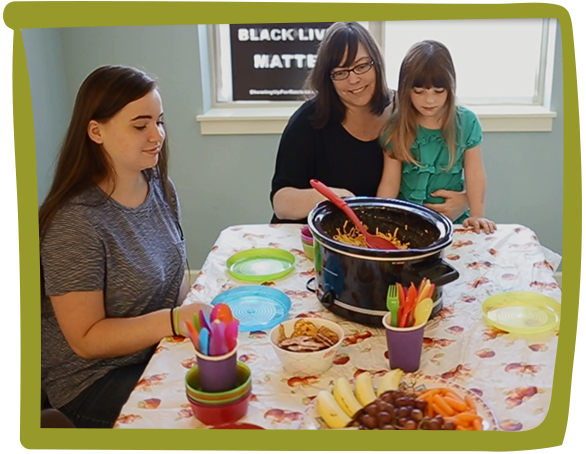
Advocacy Center
Our Advocacy Center hosts programming and offers community connections for the whole family. Both our current and past shelter residents have access to an array of activities and resources in the space, including support groups, housing assistance and emergency aid, food and hygiene supplies, counseling, youth and family activities, and more.
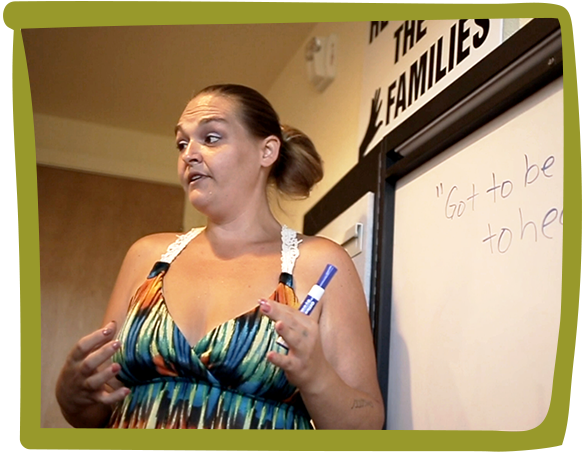
Shelter to Stability and S.W.A.G.
Our Shelter to Stability (S2S) program removes financial barriers that often make it impossible for a survivor to get housed and serves survivors at all 3 domestic violence shelters in Multnomah County: Raphael House, Bradley Angle, and West Women’s and Children’s.
This aid is paired with long-term peer support via S.W.A.G. (Survivors are Worthy, Awesome, and Gutsy), a survivor-led mentorship group that meets weekly to learn about and discuss topics such as budgeting, landlord-tenant relationships, and life skills that help families stay housed. At each gathering, professionals and experts from the community are invited to share about relevant topics and resources, while survivor mentors offer insight and information through their unique lens of lived experience. Read more here.
community-based programming
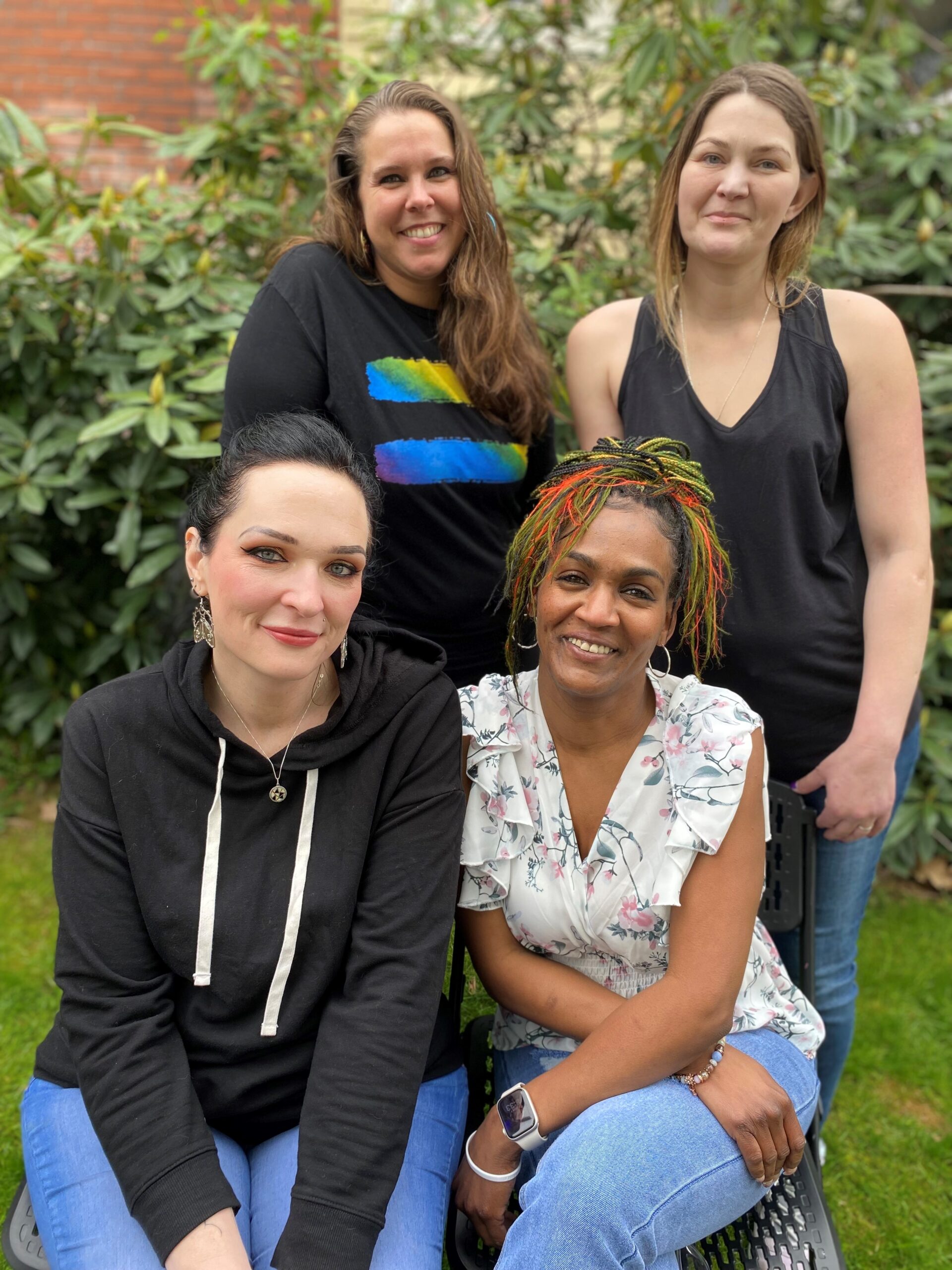
Domestic Violence Recovery Mentors (DVRM)
Our survivor-led, peer support programming is the first of its kind in Oregon specializing in the intersection of domestic violence and addiction recovery. Our four Recovery Mentors offer lived experience in both recovery and as survivors themselves, and are uniquely able to provide participants with a wide range of support as they transition from violence into safety.
We understand that substance abuse and domestic violence are intimately linked and often occur simultaneously. Trauma can lead to drug and alcohol use as a coping mechanism, to numb the pain of abuse. Addiction is also utilized as a tactic by abusers, who use substances to control and isolate survivors, limit access to treatment, and sabotage recovery. Despite these connections, the domestic violence and addiction/recovery fields often work in isolation from each other.
Our DVRM program is here to bridge the divide. No matter where survivors are on their journey, our Recovery Mentors can support in relation to addiction and connecting with services – because every single survivor is deserving of safety. Click here to learn more.
“No one has lived my story to the extent that my Recovery Mentor has. That allowed me to recognize I wasn’t alone.” – LT, survivor
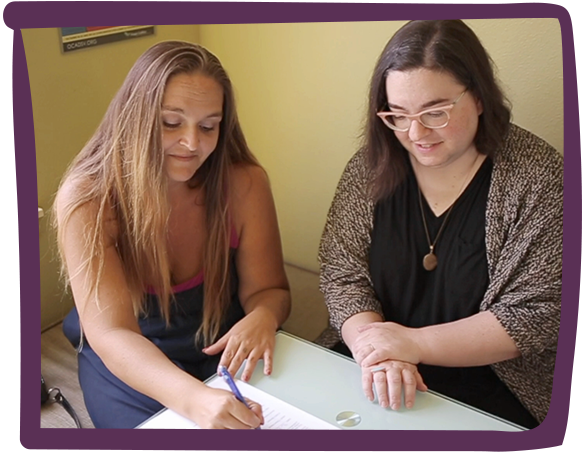
Confidential Advocacy in Health Care
Health care visits provide a vital window of opportunity to reach survivors and provide them with resources and support. Just talking to a health care provider about domestic violence can increase access to supportive services, improve health outcomes, and reduce the risk of violence.
That’s why Raphael House is proud to have a full-time advocate stationed at OHSU Family Medicine’s Richmond Clinic in Southeast Portland.
Through this project, we are increasing survivors’ safety and well-being by giving them direct access to confidential advocacy services at their doctor’s office. We are also working closely with health care providers to help them better screen for and respond to intimate partner violence, while enhancing their understanding of its dynamics and impacts on health.
Read about our housing programs
In response to Portland’s escalating affordable housing crisis, our supportive services have expanded to help survivors access housing in multiple ways.
Who do we serve?
Raphael House proudly serves anyone impacted by domestic violence regardless of gender identity, ethnicity, disability, immigration status, primary language, or sexuality.
Multigenerational families with kids (and adults) of all ages are supported, and we welcome pets!
“Raphael House has changed my life for the better. I woke up and found a community. Now I am healing myself.”
Phoebe, survivor and past shelter resident